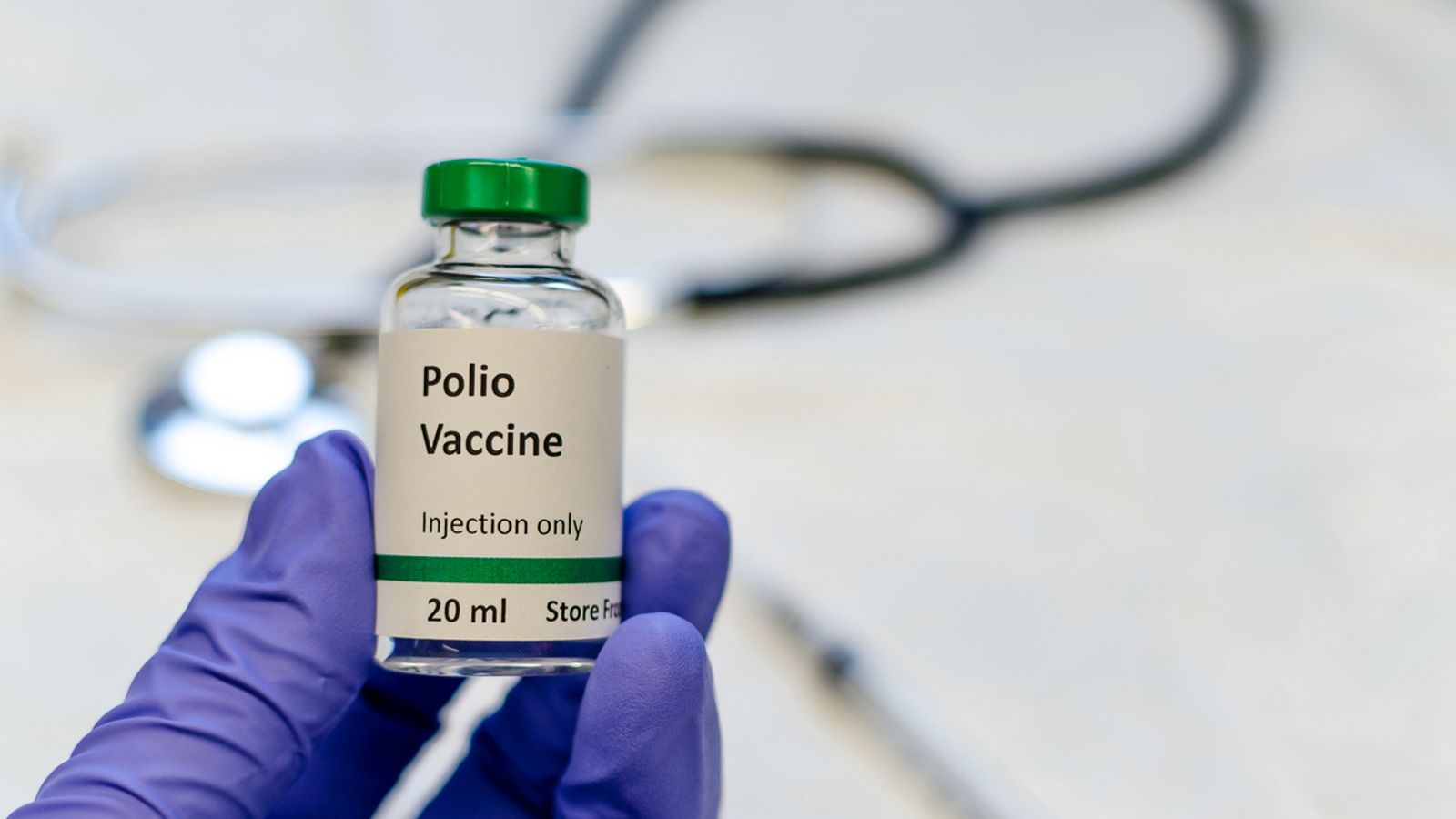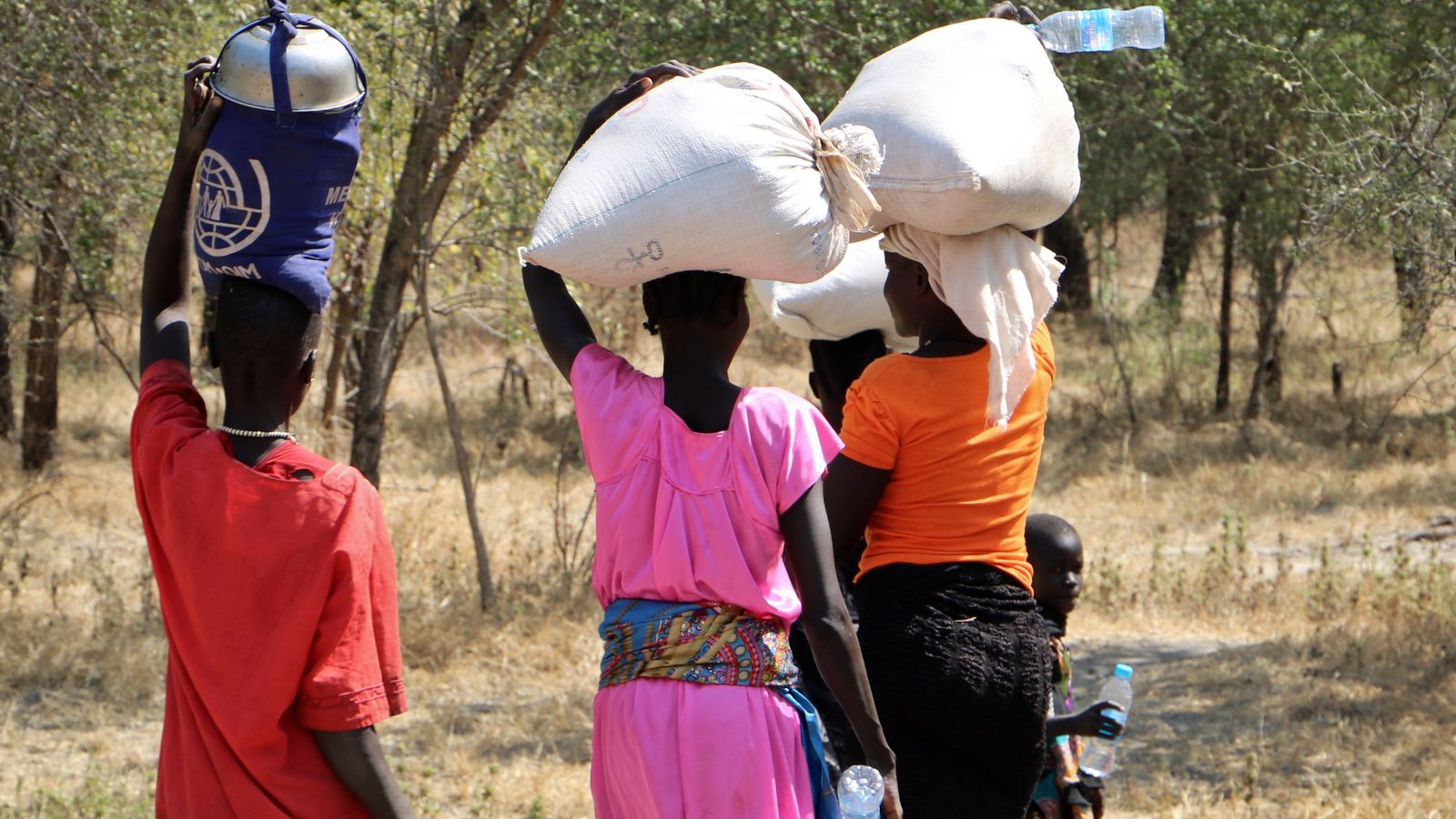UK health officials are urging the public to ensure their polio vaccines are up to date after traces of the virus were found in London sewage.
The UKHSA has declared a national incident – but says the risk to the general public remains low.
What is polio?
Polio is a contagious virus that can be transmitted through coughs and sneezes, but also through food, water or objects that have been in contact with the faeces of someone infected with it.
It can live in an infected person’s throat and intestines for weeks and they can spread it without experiencing any symptoms themselves.
The virus has been eradicated in most parts of the world due to a successful global vaccination programme. However, it is still found in Afghanistan, Nigeria and Pakistan.
The last case of wild polio contracted in the UK was confirmed in 1984 and the UK was declared polio-free in 2003.
What are the symptoms?
It is very common to not have any symptoms if you have polio.
However, some people will experience mild, flu-like symptoms such as:
These symptoms usually last up to 10 days.
How dangerous is it?
In very rare instances, between 1 in 100 and 1 in 1,000 cases, polio can affect the nerves in your spine and base of your brain which can cause paralysis, usually of the legs. This might happen in a matter of hours or over a few days.
This paralysis is not usually permanent and movement should return after a few weeks or months.
But polio can be life-threatening if the paralysis affects the muscles in the head and neck and affects breathing.
While most people recover, some patients may need long-term treatment or support.
There is also a condition called post-polio syndrome which is when a person develops symptoms 15 to 40 years after they first contracted the disease.
Am I vaccinated against it?
The polio vaccine is part of the UK’s routine childhood vaccine schedule so most people in London, where the traces have been found, are protected.
Jane Clegg, Chief nurse for the NHS in London said: “The majority of Londoners are fully protected against polio and won’t need to take any further action, but the NHS will begin reaching out to parents of children aged under five in London who are not up to date with their polio vaccinations to invite them to get protected.
“Meanwhile, parents can also check their child’s vaccination status in their Red Book and people should contact their GP Practice to book a vaccination should they or their child not be fully up to date.”
The vaccine is given when a child is:
A person needs to have all of these vaccinations to be fully vaccinated against polio.
What exactly has been found in the UK?
The UK Health Security Agency (UKHSA) has found poliovirus in sewage samples collected from the London Beckton Sewage Treatment Works.
It is normal for 1 to 3 ‘vaccine-like’ polioviruses to be detected each year in UK sewage samples but these have always been one-off findings that were not detected again.
Investigations are under way after several closely related viruses were found in sewage samples taken between February and May.
The virus has continued to evolve and is now classified as a ‘vaccine-derived’ poliovirus type 2 (VDPV2), which on rare occasions can cause serious illness, such as paralysis, in people who are not fully vaccinated.
Most of the UK is protected from polio because they have been vaccinated. However, vaccination rates vary across the country and in communities with lower uptake, individuals will be more at risk.
You can be vaccinated against polio at any age if you’ve not had one before and it should be free on the NHS.
You should also get vaccinated even if you’ve had polio before as the vaccine protects against three different types of poliovirus.
No associated cases of paralytic polio have been detected to date and the risk to the public has been assessed as low.











